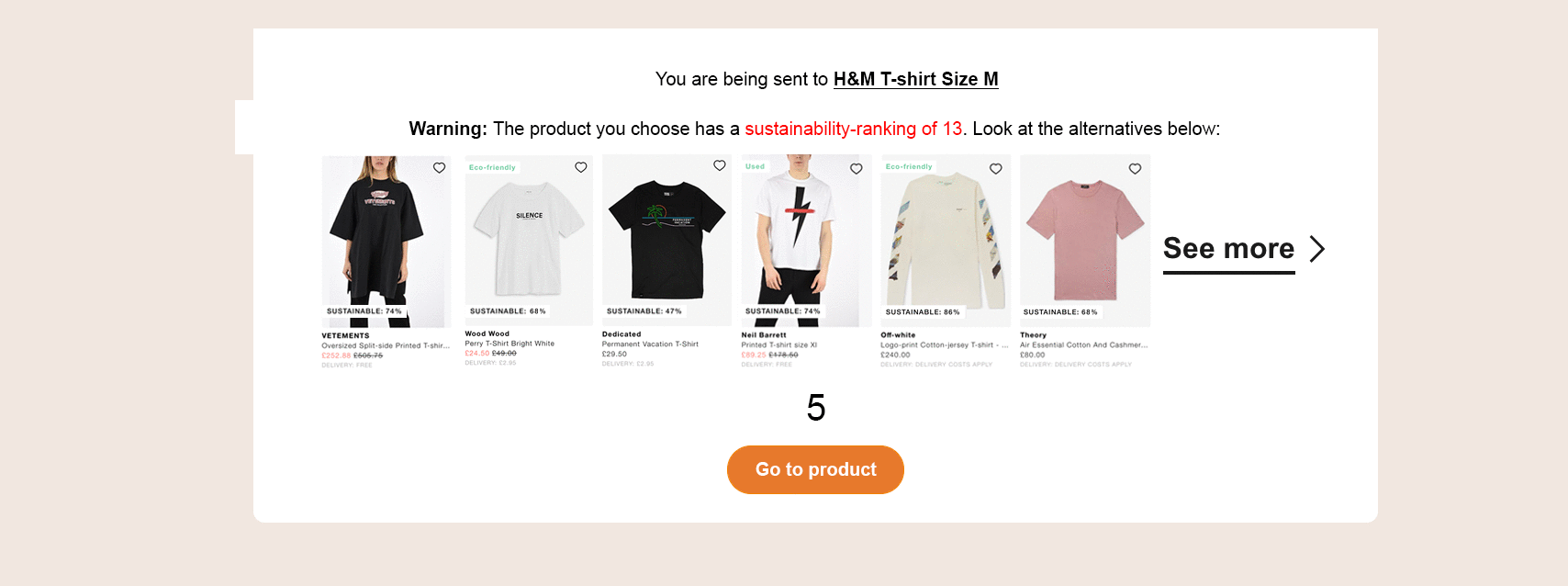Your time & attention is valuable, so I’ll begin with a summary.
The basic idea in this post is to consider how consumerism culture affect you and I give a proposal on how our consumption can be reversed from damaging the environment to a state-of-mind where we free ourselves from environmental guilt and shop sustainably — with a service similar to Google Shopping but 10x better and focused on sustainability, and I will let you know how youcan help us with recruitment to build such an Internet service.
Consuming goods has an immediate reward, but also long-term rewards. The excitement of spontaneously shopping some clothes, or clicking home some stuffs from Amazon or another e-commerce is tied to our self-image. Showing up at work/school/friends gathering with your new clothes improve the way you are perceived. And likewise, you judge others by their clothes. Our consumption is a core part of our culture. And so, it will likely remain.
What is easier to change, is removing the guilt we are all carrying around us, that we buy things we don’t need, that we have products we rarely use – which was produced in suppressing conditions (in Bangladesh, China, India etc). This background knowledge is holding you back from feeling virtuous (that pleasurable feeling after you helped somebody).
Our consumption need not to harm the environment, and we can free ourselves from the advertising, consumerism, individualism that caused this.

The idea was born 8 years ago, when I had a presentation in high school featuring the classic quote:
Advertising has us chasing cars and clothes, working jobs we hate so we can buy shit we don’t need.

I been a minimalist ever since. But being so, while still taking advantage of all wonderful, comfortable and innovative products in the world.. is tricky. It takes time to do my e-commerce, and I know we can make it smoother.
E-commerce comparsion + sustainability = ❤
It’s very easy for price comparison sites like Google Shopping, PriceRunner, Stylight, Shopalike, Idealo or which ones you use,to add filters like:
Only show me Used Products
or
Only show me Eco-friendly products
whilst its harder to:
Show me the ranking 1–100 on sustainability of every product
The first two is very easy to implement, however no major price comparison is doing it > because it damages their profit > because their brands are not tied to sustainable shopping.
What if there was a price comparison website with a brand tied to sustainability? It can be seen as the brand of Apple. With their iPhones and Mac’s they have heaps of user-data — but they choose not to profit from it like other tech-giants do (Facebook, Amazon, Google, Tencent). Instead, they do almost nothing with it. Why? Because privacy is tied to their brand image, and in the long run they benefit more from protecting the user privacy. Win-win.
Sustainable e-commerce is just around the corner
Me and Urielare close to launching a first version (MVP) of finding eco-friendly and pre-used products. To speed up the process we are looking for more team-members. Primarily full-stack software developers, but also a product manager. It would help us a lot if you could recommend us to somebody, and if you could share this article on social media.
Our path to saving the planet
Sustainability as a brand-image will incentivize us to develop the below 5 features, of which all rapidly help consumerism culture across the world become more aware of environmental impact.
Warning-sign when buying non-sustainable products

The above will be controversial — but its a part of a marketing campaign to rapidly grow as a sustainable e-commerce brand.
Product-pool for household products (like a car-pool)
The technology is there — it’s very easy to keep track of who owns a product, and facilitate sharing across users. Imagine you use a screwdriver 5 times a year, wouldnt it be enough if 1 of your Facebook friends owned one? What’s needed is critical mass of users and ease-of-use. Our platform can be the one making this to reality.
Ranking products on sustainability 1–100
Quite often we choose to buy new products, in a category without any major sustainability ratings (ex. dishwashers has energy-efficiency, whilst there’s no such ratings for ex. clothing, smartphones or kitchenware)
We will build ratings for each and every individual product and type of product, using data from established eco-rating brands but also looking at materials, working conditions, corporate social responsibility and other factors. Over time, this ratings can become very accurate, and useful.
Token-economy based on sustainable purchases
Every time you make a sustainable purchase, you get some virtual tokens. These can be shown as a status, but could also be used for ex. guided Meditation/Yoga/Gym/Cooking sessions where people trade their time, knowing that everyone participating has done well for the environment in order to get there.
Buying guides along with the search results
Too often we don’t know what to look for. Is a dishwasher really more eco-friendly than doing dishes by hand? Yes actually it is, as long as you fill the machine. Is it better to buy an iron-cast frying pan than a normal one? Yes, because the durability of an iron-cast frying pan is 20+ years whilst a normal frying pan usually last 1–2 years. Our education of product types will help users understand their choices better.
Imagine it as going to a physical store and being helped by a clerk whose sole purpose was to help you find the most sustainable product
Time to make these features come to life
Thank you for reading this article. If you believe in our vision, feel free to support us, you know how 🙂
Til next time,
Erik